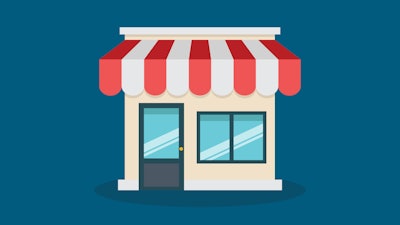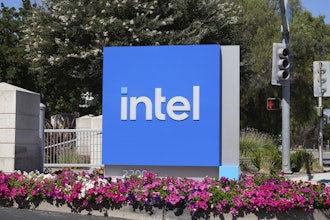
NEW YORK (AP) — Millions of small business owners will be turning to the government, seeking help for an individual and nationwide cataclysm, the economic devastation caused by the coronavirus outbreak.
The government says it will begin disbursing loan money to company owners and freelancers Friday under the Paycheck Protection Program, part of the $2 trillion relief package signed into law last week. For many companies, it may be the quickest way to rebuild the lifeblood of any business: the cash flow that enables a company to pay its bills.
The program could be vital to the economy's recovery: Small businesses employ about half the workers in the private sector. By some estimates, as many as 20 million people will have lost their jobs by the end of April.
Here are questions and answers about financial help available through the government and other sources:
ARE THESE PAYCHECK PROTECTION LOANS FREE?
They can be, if they're used to retain or hire workers. Starting Friday, the Small Business Administration is guaranteeing $349 billion in potentially forgivable loans under the rescue package. A business with up to 500 employees, including owners who work solo and freelancers, can borrow up to $10 million to be repaid over two years at an annual rate of 0.5%. The money that's used to pay salaries can be forgiven, and a portion of money used for rent, mortgage interest and/or utilities can be at least partially forgiven. Payments are deferred for six months.
You technically could get the full amount of the loan forgiven. But if you cut jobs — say you had 10 employees, let them go, and hired back only five — the amount of loan forgiveness will be reduced, and you'll have to repay some.
But a caveat from the government: Because so many owners are expected to take advantage of the loans, it's anticipated that no more than 25% of the forgiven amount may be for things other than payroll — rent, mortgage interest and utilities. So there's a good chance you will have some repayments ahead.
You can learn more about the loans at https://www.sba.gov/funding-programs/loans/paycheck-protection-program-ppp.
HOW DO I GET ONE?
The government says this will be a fast, streamlined process — some companies could get money the same day, not like the weeks it takes when applying for a traditional SBA loan. You can apply through any federally insured bank, credit union or farm credit system institution, not just a traditional SBA lender. Most businesses are expected to apply online, through a financial institution's website.
You don't need collateral or a personal guarantee. But you'll need to document your payroll, rent, mortgage interest and utilities expenses. The payroll portion of the loan is based on the monthly average of what a company paid employees during the year prior to the loan being granted.
WHEN WILL MY LOAN BE FORGIVEN?
The government will calculate how much of a loan will be forgiven after June 30. The program covers the period from Feb. 15 through June 30 and owners will need to document how many workers they employed during that time and how much they were paid.
If you've laid off workers, you have until June 30 to rehire them — but the sooner you rehire and start paying them, the larger your loan forgiveness will be.
CAN I GET A DISASTER LOAN TOO?
Yes, but ...
The SBA is giving out what are called economic injury disaster loans. These are intended to help companies whose revenue losses have left them without working capital, making it difficult or impossible to pay their operating expenses including payroll, fixed debt payments and accounts payable bills. But a company that gets a disaster loan cannot use the money for payroll purposes if it's also getting a paycheck protection loan.
The disaster loans give owners up to $2 million at an annual rate of 3.75%. The loans can be taken out for as many as 30 years, but the terms of each loan will be determined on a case-by-case basis and will depend on each company's financial situation.
Companies can also apply for a $10,000 loan advance that can be granted within three days, the SBA says. This does not have to be repaid.
Disaster loan applications are made directly through the SBA on its website https://covid19relief.sba.gov/
WHAT OTHER MONEY IS AVAILABLE?
The Federal Reserve is working on a program to provide loans directly to small businesses. The details have not been announced yet.
Individual states, counties and cities may have loans or grants for small businesses. And those that have not yet announced any programs may yet create them — the outbreak has not yet reached its peak. Check online with your state or local agencies that support small businesses.
CAN FREELANCERS GET UNEMPLOYMENT BENEFITS AND A LOAN TOO?
Yes. The rescue package provides for unemployment benefits for freelancers and independent contractors who haven't qualified for such help in the past. So millions of people, including wedding photographers, graphic artists and writers, who have lost gigs or projects can get unemployment benefits. They're also eligible for paycheck protection loans — but if they have both types of loans, they cannot use disaster loan money to cover payroll.
WHAT ABOUT ONLINE LENDING?
Online lenders promise fast money — some turn loans around the same day — and even in the best of times, many companies with cash flow crunches turn to them. But in many cases the money carries a steep interest rate and/or big payments. And unlike traditional loans, the size of a payment may not be predictable — companies like PayPal, for example, will take a percentage of revenue that comes into a borrower's account.
Keep in mind that even that even if you end up paying back the full amount you borrow under the Paycheck Protection Program, you'll be paying just 0.5% over two years.
HOW ABOUT CONCESSIONS FROM LANDLORDS AND OTHER BUSINESSES?
Many small business owners have been in touch with their landlords, bankers and suppliers, asking for more time to pay. And some have gotten concessions, especially when the business and its creditor or banker have a long-time relationship.
Any concessions or grace periods you can get, especially if they're interest and penalty-free, may be a good route to go. Landlords and business associates who want to hold on to your business can be accommodating unless they're also struggling with cash flow problems. It's also true that some, perhaps many, are tough business people; some are already suggesting to their tenants and customers that they should seek government loans rather than help from them.
THERE'S ALWAYS FAMILY AND FRIENDS, RIGHT?
Absolutely. And the people close to you may be ready and willing to help — if they can right now. But, for the sake of keeping these relationships solid, if you get a loan from someone close, you need up-front and honest communication now and going forward about how the business is doing, and when you're likely to repay them.





















